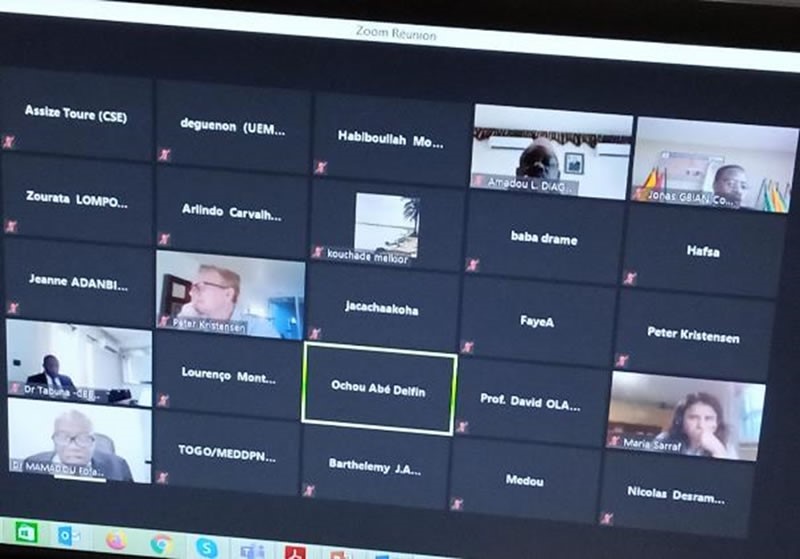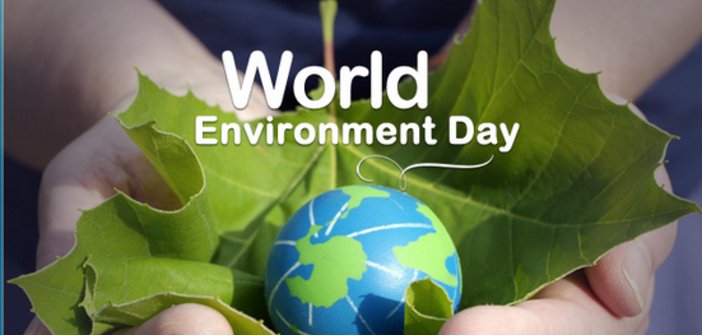Trier les resultats par: Article le plus récent
-
Publication
Communiqué de presse WACA en Côte d’Ivoire : Cinq comités de gestion des plaintes installés et opérationnels dans la zone de Grand Lahou
Auteur: WACA Cote d'Ivoire
Une étape importante dans le cadre de la mise en œuvre du Projet d’Investissement pour la Résilience des Zones côtières en Afrique en Côte d’Ivoire (WACA ResiP) vient d’être franchie avec l’installation du 22 au 28 mars 2020, de 5 Comités Locaux du Mécanisme de Gestion des Plaintes (MGP) dans le département de Grand-Lahou, zone pilote du projet WACA. Il s’agit des Comités Locaux de gestion des plaintes des villages de Lahou-Kpanda, de Groguida, de Likpiliassié, de Braffedon et du Comité Communal de gestion des plaintes de Grand- Lahou.
-
Publication
Projet WACA ResIP : le Comité Régional de Pilotage tient sa 4ème réunion
Auteur: Safietou SALL BA Spécialiste en Communication WACA-BAR / Projet WACA ResIP
Le 26 juin 2020, s’est tenue par visioconférence, la 4ème session ordinaire du Comité Régional de Pilotage (CRP) du Projet d’Investissement pour la Résilience des Zones Côtières en Afrique de l’Ouest (WACA ResIP). L’objectif était de passer en revue l’état de mise en œuvre des activités du projet aux niveaux national et sous-régional ainsi que les dispositions prises pour la continuité des activités dans le contexte de la Covid19.
-
Publication
Observatoire du littoral ouest Africain (ORLOA) (Extrait de la note d’orientation)
Auteur: Centre de suivi ecologique
L'érosion du littoral, ainsi que les risques de submersion des côtes, constituent un sujet de plus en plus préoccupant pour les communes et les populations littorales ouest africaines, compte-tenu de l’augmentation des enjeux environnementaux, socio-économiques dans des zones soumises à des aléas naturels récurrents dans un contexte de changement climatique.
-
Publication
Mauritania, World Oceans Day Celebrated through the Press
World Oceans Day was celebrated in Nouakchott in the context of Covid 19. Emphasis was placed on the presentation of WACA through the press. The objective was to increase the visibility of the project in order to obtain the adhesion and full participation of the target populations.
-
Publication
Ministerial Communique on the Occasion of the WACA Program Launch of November 2018
Auteur: WACA Program
Considering that the coastal zones of West Africa and beyond contain most of the region’s capital cities, that they account for more than one third of the region’s gross domestic product, and are home to more than one third of its population and likely more than half by 2050.
-
Publication
The Cost of Coastal Zone Degradation in Nigeria: Cross River, Delta and Lagos States
Auteur: Lelia Croitoru, Juan José Miranda, Abdellatif Khattabi and Jia Jun Lee
Nigeria is Africa’s richest economy. The country has a large population, abundant natural resources, and diverse cultures. Coastal areas are particularly unique: extending along more than 800 km, they are home to rich ecosystems, thriving industries, and booming opportunities. But these areas are also fragile.
-
Publication
Resilient Coastlines Resilient Communities Annual Report 2020
Auteur: The West Africa Coastal Areas Management Program (WACA)
With the World Bank engagement through WACA, we have been able to accelerate regional integration on coastal resilience. The combination of the World Bank’s ability to provide finance at the national and regional levels in parallel is proving effective for integration, harmonization, and economies of scale.
-
Publication
Un Littoral résilient, des communautes résilientes rapport annuel 2020
Auteur: The West Africa Coastal Areas Management Program (WACA)
L’engagement de la Banque mondiale à travers le WACA, nous a permis d’accélérer l’intégration régionale en matière de résilience côtière. La capacité de la Banque mondiale à fournir des financements à la fois au niveau national et régional s’avère efficace pour l’intégration, l’harmonisation et les économies d’échelle.
-
Publication
São Tome e Príncipe: WACA Promotes Safe Port Operations
Auteur: WACA Sao Tome
Safety and profit are crucial in ports operations. In São Tome e Príncipe, WACA is boosting the capacity of the National Meteorological Institute of São Tomé e Príncipe (INM-STP) to provide to ports up-to-date meteorological services to reduce risks.
-
Publication
A Roadmap for Radical Reduction of Plastic Pollution in Ghana
Auteur: Ghana National Plastic Action Partnership
The impacts of plastic production, use and disposal on the environment and society present a number of challenges along the plastic value chain.
-
Publication
Gender Analysis of the Plastics and Plastic Waste Sectors in Ghana
Auteur: Ghana National Plastic Action Partnership
In the last three decades, Ghana, like many of its neighbouring countries, has been challenged with the exponential growth of plastics use, coupled with its alarming mismanagement.
-
Publication
What a Waste 2.0 A Global Snapshot of Solid Waste Management to 2050
Auteur: Silpa Kaza, Lisa Yao, Perinaz Bhada-Tata, and Frank Van Woerden
Solid waste management is a universal issue affecting every single person in the world. Individuals and governments make decisions about consumption and waste management that affect the daily health, productivity, and cleanliness of communities.
-
Publication
Unlocking the Plastics Circular Economy: A Toolkit for Investment
Auteur: Global Plastic Action Partnership
It is estimated that, without significant action, 29 million tonnes of plastics will flow into the ocean every year by 2040.
-
Publication
Unlocking the Plastics Circular Economy: A Toolkit for Investment
Auteur: Global Plastic Action Partnership
It is estimated that, without significant action, 29 million tonnes of plastics will flow into the ocean every year by 2040.
-
Publication
Policies to Reduce Single-Use Plastic Marine Pollution in West Africa
Auteur: IssahakuAdama, Tony RobertWalker b, Joana CarlosBezerra c, Andrea Clayton
Countries in Africa are increasingly adopting policies to reduce single-use plastic (SUP) pollution, yet there has been limited analysis of policies adopted by African countries. This paper reviews SUP reduction policies, specifically in West Africa.


